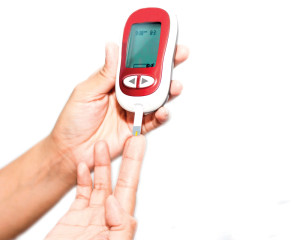 Researchers at the University of Texas Southwestern Medical Center developed a new dietary supplement that reduces high blood sugar caused by thiazide diuretics and corrects electrolyte imbalances.
Researchers at the University of Texas Southwestern Medical Center developed a new dietary supplement that reduces high blood sugar caused by thiazide diuretics and corrects electrolyte imbalances.
The research was published in the journal Hypertension and co-led by Dr. Wangen Vongpatanasin and Dr. Charles Pak, two professors of internal medicine at UT Southwestern.
“When patients take a medication, they want to treat one disease and not cause another,” Vongpatanasin said. “These findings suggest we may be able to reduce the risk of elevated blood sugar caused by thiazide diuretics with a simple supplement.”

According to Vongpatanasin, millions of Americans take thiazide diuretics, a class of medications used to treat high blood pressure. These drugs are effective but can cause side effects, such as reduced electrolyte potassium, high cholesterol and triglycerides, and elevated blood glucose levels.
“The increase in glucose prompted by these drugs has long been attributed to the decrease in potassium levels,” Vongpatanasin said. “Although low potassium is effectively treated with potassium chloride (KCl), they don’t seem to affect glucose levels.”
A randomized, double-blind study was conducted on 60 patients taking thiazides for 16 weeks with half taking a combination supplement containing potassium, magnesium and citrate (KMgCit) and the other half taking KCl.
During the initial three-week period without supplementation, both groups experienced reductions in potassium and magnesium and increases in fasting glucose levels, researchers said.
However, with supplementation those taking KCl had high glucose levels, but the KMgCit group’s glucose levels dipped an average of 7.9 milligrams per deciliter, according to researchers.
“Although it’s unclear which component in the combination supplement lowered glucose, previous studies have shown that deficiencies in magnesium can have wide-ransing negative metabolic effects,” Vongpatanasin said.
To read the fully study, visit this link.





